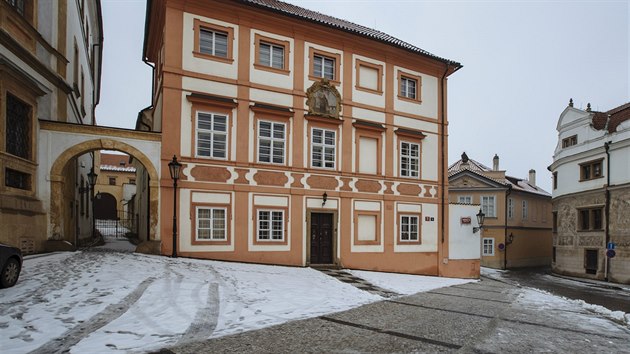
A man I used to know,
I thought I knew,
put his lifetime work
into one thick compendium,
while making sure
that as little as can be
there was included
from what he wrote
on literature before 1989.
But the penultimate piece
that crowns his book
is a massive paean, a tribute,
to the gallery of girls and women
who were pimped by George Mucha,
the son of the famous painter,
to the VIPs and agents of the East and West,
and the select, leading dissidents,
including Vaclav Havel, a future President,
and to many from Who’s Who
from the communist cultural establishment,
and all these orgies (under the eye
of the StB, the KGB, MI 6, and the CIA)
were taking place over decades
in a small palace, leased by the Church
to the communist government,
right behind a Baroque building
of the Ministry of Foreign Affairs,
and across from the Castle of Prague,
the country’s presidential seat.
He called these “Mucha girls”
“female teenage beasts” … who,
he “assumed, must have
closely felt the purity [sic]
in the gaze of their shy [sic]
[patrons and] stalking hunters,
their burgeoning and timid [sic] lust,
all the respect, all the passion,
that these artists had to suppress…”
This VIP, state-run détente bagnio,
he avows, was “in Prague the last
truly authentic salon”
in which the girls, “the butterflies
were caught and pinned
in an eerie loop of time,
as if fossilized in drops of amber.”
At times even British diplomats
shared there their wives
for the Crown
and the Hammers of the Reds.
There aging Saturns fed
and feasted like “Oriental sultans”
on “the youth of the [local] femmes
and their biology rising and the need
and hope for freedom
already there and right then,
and so piercing the crust
of their [communist] oppression,
becoming a protest song
in the name of life
as it truly is …
a cry of the senses
enslaved all the same;
otherwise their young lives,
their future, would have been
completely wasted
in the years of that aged
and sterile socialist gerontocracy.”
But there “just within the reach
of the exposed arms of those queens of nights
were great fates”—and this was “the peak,
the best, the utmost, which their otherwise
drab and humdrum, ordinary lives
could ever attain or ever hope for,
even so most likely still condemned
to be dragged unjustly and mercilessly
back to their normal, worthless selves.”